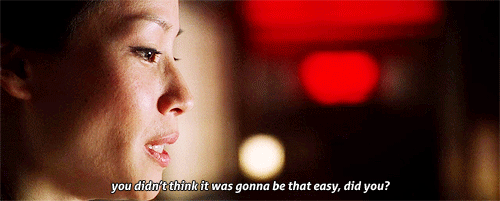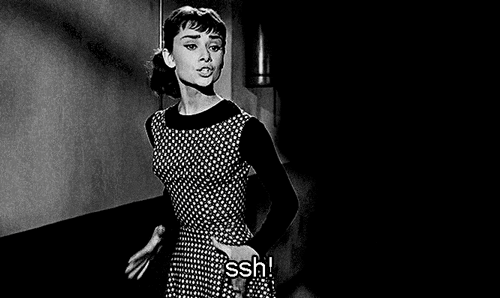A number of people have been asking for interviewing tips, in that they don't know where to start, or what to ask, ect.
Happily, I do have some resources with which to help you guys out!
The first one is a handout called "Reporter's Tip Sheet." Below is the text. Hope it helps! (And if not, see me ASAP so we can figure things out a bit):
REPORTER'S TIP SHEET
FIRST: Talk to you editor and ask questions to learn what the story is about, possible sources and your editor's perspective on why this is worth covering.
PREPARE FOR THE INTERVIEW:
>>> Read back issues of the publication or any other publication that has covered the story for background.
>>> Think about who is likely to know the information you need.
>>> Surf the Web and use other reporting tools to find sources to interview both on the Web or phone (for those who live out of your area) and in-person.
>>> Identify those individuals.
>>> Email or call to set up an interview.
>>> If you need biographical info from a business executive, politician or celebrity, ask in advance of interview and check out online resources like Wikipedia.
>>> Write down your questions in advance.
>>> Organize the questions so your interview flows.
>>> Read over the questions to make sure you cover all you need to in the interview.
>>> In all stories, at a minimum, you need to answer the 5 W's and H (who, what, when, where, why and how).
FACE-TO-FACE INTERVIEWS:
>>> Be on-time and dress appropriately in, at least, business casual
>>> Introduce yourself, shake hands and sit down
>>> Observe the surroundings (e.g., if you're in an office, there are family pictures, unusual artwork, ect.). Use the information for color in your story, if appropriate, and as an ice-breaker to start the interview.
>>> Make sure you have the correct spelling and title of the person you're interviewing.
>>> After one or two ice-breaker questions, start asking your formal interview questions (leave the hard or controversial questions to near the end of the interview; just be sure you don't run out of time!).
>>> Take careful notes using a reporter's notebook or laptop computer. If you use a tape recorder, you MUST still take thorough notes. (Tape recorders are notorious for malfunctioning during critical interviews.)
>>> Control the interview -- you ask the questions. Don't get tricked into answering your subject's questions or getting into a discussion or conversation with the person. That's the oldest trick in the book. Before you know it, the interview is over, and you don't have what you need for the story.
>>> Listen AND take good notes. Rich, full, direct quotes are essential in well-written stories.
>>> Get a cell phone number and email address for follow-up questions. Tell your subject you need the numbers in case you have further questions after business hours and to ensure accuracy of your story.
>>> Ask the interview subject who else could provide you with additional information.
>>> Thank the person for his or her time.
>>> Remember, journalists do not show stories to any interviewee for their approval or verification, prior to publication. This isn't public relations for the company newsletter.
PHONE INTERVIEWS:
>>> Interviewing by phone has some strong limitations -- depriving you of visual cues from the person being interviewed.
>>> However, the phone is such a common method of communication that many times you can actually pull more information from a person in a phone interview, if you know how to ask the questions and control the direction and speed of the interview.
>>> Most of the same rules of face-to-face interviewing apply.
>>> When in doubt, check it out.
EMAIL INTERVIEWS
>>> Interviewing people by email has some inherent pluses -- you get agreat set of accurate quotes back.
>>> However, the flexibility and flow of an interview is more formalized and stilted.
>>> And, you have to make sure you are getting answers from the person you are interviewing and not some flunky or publicist who is a stand-in.
>>> It is preferable to make contact via email, then if the person is still within the U.S. to do a phone interview if a face-to-face is impossible or geographically unfeasible.
Happily, I do have some resources with which to help you guys out!
The first one is a handout called "Reporter's Tip Sheet." Below is the text. Hope it helps! (And if not, see me ASAP so we can figure things out a bit):
REPORTER'S TIP SHEET
FIRST: Talk to you editor and ask questions to learn what the story is about, possible sources and your editor's perspective on why this is worth covering.
PREPARE FOR THE INTERVIEW:
>>> Read back issues of the publication or any other publication that has covered the story for background.
>>> Think about who is likely to know the information you need.
>>> Surf the Web and use other reporting tools to find sources to interview both on the Web or phone (for those who live out of your area) and in-person.
>>> Identify those individuals.
>>> Email or call to set up an interview.
>>> If you need biographical info from a business executive, politician or celebrity, ask in advance of interview and check out online resources like Wikipedia.
>>> Write down your questions in advance.
>>> Organize the questions so your interview flows.
>>> Read over the questions to make sure you cover all you need to in the interview.
>>> In all stories, at a minimum, you need to answer the 5 W's and H (who, what, when, where, why and how).
FACE-TO-FACE INTERVIEWS:
>>> Be on-time and dress appropriately in, at least, business casual
>>> Introduce yourself, shake hands and sit down
>>> Observe the surroundings (e.g., if you're in an office, there are family pictures, unusual artwork, ect.). Use the information for color in your story, if appropriate, and as an ice-breaker to start the interview.
>>> Make sure you have the correct spelling and title of the person you're interviewing.
>>> After one or two ice-breaker questions, start asking your formal interview questions (leave the hard or controversial questions to near the end of the interview; just be sure you don't run out of time!).
>>> Take careful notes using a reporter's notebook or laptop computer. If you use a tape recorder, you MUST still take thorough notes. (Tape recorders are notorious for malfunctioning during critical interviews.)
>>> Control the interview -- you ask the questions. Don't get tricked into answering your subject's questions or getting into a discussion or conversation with the person. That's the oldest trick in the book. Before you know it, the interview is over, and you don't have what you need for the story.
>>> Listen AND take good notes. Rich, full, direct quotes are essential in well-written stories.
>>> Get a cell phone number and email address for follow-up questions. Tell your subject you need the numbers in case you have further questions after business hours and to ensure accuracy of your story.
>>> Ask the interview subject who else could provide you with additional information.
>>> Thank the person for his or her time.
>>> Remember, journalists do not show stories to any interviewee for their approval or verification, prior to publication. This isn't public relations for the company newsletter.
PHONE INTERVIEWS:
>>> Interviewing by phone has some strong limitations -- depriving you of visual cues from the person being interviewed.
>>> However, the phone is such a common method of communication that many times you can actually pull more information from a person in a phone interview, if you know how to ask the questions and control the direction and speed of the interview.
>>> Most of the same rules of face-to-face interviewing apply.
>>> When in doubt, check it out.
EMAIL INTERVIEWS
>>> Interviewing people by email has some inherent pluses -- you get agreat set of accurate quotes back.
>>> However, the flexibility and flow of an interview is more formalized and stilted.
>>> And, you have to make sure you are getting answers from the person you are interviewing and not some flunky or publicist who is a stand-in.
>>> It is preferable to make contact via email, then if the person is still within the U.S. to do a phone interview if a face-to-face is impossible or geographically unfeasible.






